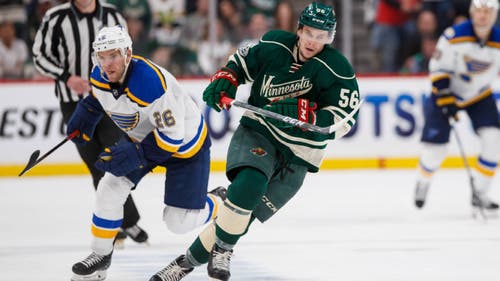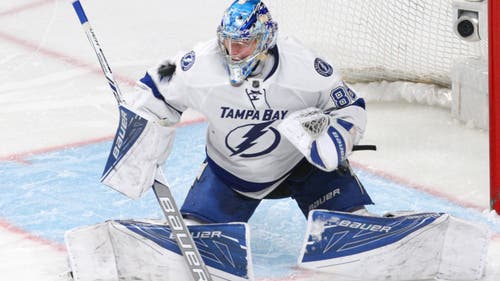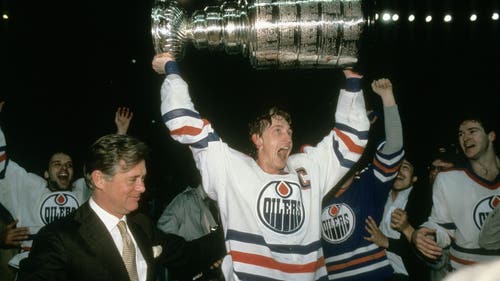
Too many Penguins came up short
In one of the biggest upsets in NHL playoff history, the upstart Montreal Canadiens eliminated the defending Stanley Cup-champion Pittsburgh Penguins from the Eastern Conference semifinal in seven games Wednesday night.
It wasn’t supposed to end this way, this soon, for the Penguins. They’d come off a six-game, first round victory over the Ottawa Senators, and while the Canadiens had upset the mighty Washington Capitals, they weren’t expected to have the same success against a Penguins team that over the past two seasons had established itself as a proven playoff contender.
After the Penguins opened the series with a convincing 6-3 victory over a tired Canadiens team, it appeared they might make short work of the underdogs. But like the Capitals before them, the Penguins discovered the hard way the Habs weren’t to be taken lightly.
Of course, the Canadiens deserve full marks for their efforts, but the Penguins also contributed to their premature demise.
The most notable was the inability of Penguins superstars Sidney Crosby and Evgeni Malkin to crack the Canadiens' shot-blocking defense and their incredible goaltender Jaroslav Halak. Heading into this series, Crosby and Malkin had established reputations as notable postseason performers, yet the Canadiens defense never allowed them much time or space to perform. On the occasions when they did break through, Halak was there with the big saves.
Crosby ran up 14 points in only six games in the first-round elimination of the Senators, but the Canadiens held him to only five points in seven games. Malkin, last year’s playoff MVP, had eight points in six games against Ottawa but was held to only three by the Habs. In the crucial seventh game, Crosby and Malkin weren't on the score sheet.
Not just Crosby, Malkin
The Penguins' dynamic duo weren’t the only ones struggling to score.
Puck-moving defenseman Sergei Gonchar, in probably his final game as a Penguin, had no points and was minus-2 in Game 7, which included allowing Canadiens forward Travis Moen to blow by him to score a short-handed goal in the second period.
Selke Trophy nominee Jordan Staal missed two games due to a sliced tendon in his foot. While he returned for the final four games of the series, he struggled through all but Game 7.
Crosby’s linemate Bill Guerin missed two games in the series and was held to only three points. Alexei Ponikarovsky, brought in at the trade deadline to provide scoring depth, managed two points in five games, doing little to convince Penguins management to re-sign him this summer.
Ruslan Fedotenko was among the heroes in the Penguins' march to the Cup last year but was invisible against the Canadiens and was scratched from Game 7.
Midway through the series, the Penguins appeared to be taking a page from the Canadiens defensive playbook, relying on Marc-Andre Fleury’s goaltending and a stingy defense to stifle the Habs scorers, but that system failed them in the final two games.
Fleury, so dependable over the past two postseasons, looked average against the Senators and struggled at times against Montreal. In the final two games, he gave up eight goals and was pulled midway through Game 7 after allowing four goals on 13 shots.
The Penguins also missed the physical presence of defensemen Hal Gill and Rob Scuderi. Both were instrumental last season, but salary cap constraints saw them depart last summer via free agency — Scuderi to the L.A. Kings, Gill to the Canadiens where he played a key role in eliminating his former team.
Lacking depth in shutdown defensemen, the Penguins struggled to contain Montreal’s smaller, speedier forwards, especially Mike Cammalleri and Brian Gionta, who accounted for most of the Canadiens’ goals in this series.
General manager Ray Shero must bolster his team’s defense and scoring depth, but with only around $11 million in available cap space that could prove a difficult task.
His core – Crosby, Malkin, Fleury, Staal, Brooks Orpik and Kris Letang – is under contract for next season, but Gonchar is an unrestricted free agent and believed to have priced himself out of Pittsburgh’s price range. Ponikarovsky was a bust and won’t be back; Fedotenko will also follow him out the door.
Shero must decide if he’ll re-sign an aging Guerin for another season as Crosby’s linemate or look for a better, affordable option elsewhere.
Only three Penguins defensemen – Letang, Orpik and Alex Goligoski – are signed for next season so restocking the blueline will be a priority. Gonchar won’t be easy to replace, meaning Letang and Goligoski could be given more responsibility next season.
Shero could try to land one or two experienced shut-down defensemen, but cap constraints will probably prevent him from pursuing expensive free agents like Ottawa’s Anton Volchenkov or Nashville’s Dan Hamhuis.
Finding high-caliber linemates for Crosby and Malkin will also be a pressing concern. But given his cap constraints, Shero might be forced to shop for bargains via free agency.
He could consider a trade but that might mean moving a key player like Chris Kunitz, which he’d probably be unwilling to consider.
The youth of the Penguins core provides an opportunity for Shero to rebuild for another run, but it could take a couple of seasons to get this team back to Cup contention again.




